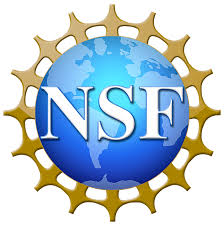


|
Division of Agricultural Sciences and Natural Resources, Oklahoma State University | Medicago truncatula Mutant Database | ||||
| Medicago truncatula Mutant Database |

|
||||
Legumes are second only to grasses in their worldwide economic importance. Apart from their importance as food for humans and other animals and as feedstock for industry, legumes play a pivotal role in maintaining our ecosystem by fixing atmospheric nitrogen in symbiotic association with soil bacteria of the family Rhizobiaceae. Deciphering the roles of individual genes in legumes is important not only for a better understanding of the biology of these plants, but also for breeding efforts that aim to improve legume performance and quality for agriculture. This database and the associated biological resources provide tools to facilitate gene function discovery and, ultimately, legume breeding.
Medicago truncatula has been selected as a model species to study biological processes that are unique and/or pertinent to legumes that cannot easily be studied in other model species such as Arabidopsis or rice. Several genomic tools and resources for M. truncatula are now available and a fully sequenced and annotated genome is in place. To complement these resources and to enable efficient forward and reverse genetics studies with this species, researchers at Noble Research Institute have previously generated two mutant resources: (i) a Fast Neutron Bombardment (FNB) deletion mutant population of approximately 117,000 M1 lines; and (ii) a Tnt1 retrotransposon insertion population of over 21,000 lines encompassing more than one million random insertions within the genome. These resources were developed with support from the National Science Foundation Plant Genome Program (DBI 0703285 and IOS-1127155). Other Tnt1 mutant lines that were developed by European groups (www.eugrainlegumes.org) are also integrated with our collection to obtain approximately 22,000 mutant lines containing insertions in approximately 90% of all genes in M. truncatula. Due to research direction adjustments at Noble Research Institute, these resources have been transferred to Division of Agricultural Sciences and Natural Resources, Oklahoma State University in July 2021.
In collaboration with researchers from various institutions in the United States and other countries, we have screened all 21,700 Tnt1 lines for visible phenotypes in the R1 generation. We identified approximately 30% visible mutants in at least 25 distinct phenotypic classes, including super-nodulating, non-nodulating, non-nitrogen-fixing, late and early flowering, dwarf, altered anthocyanin content, light green, albino, transformed floral organs, and singlet leaves with cauliflower-like reproductive tissue, which are shown on this website.
Phenotypic descriptions and photos of FNB mutants are also included in this database.
Currently this database contains images of Tnt1 and FNB mutants that show significant phenotypes, organized according to line numbers. In addition, FSTs associated with specific Tnt1 lines are contained in a BLAST-able dataset. Functionality of the website may be updated periodically.
This web site and the resources described herein were funded by the US National Science Foundation and maintained by Division of Agricultural Sciences and Natural Resources, Oklahoma State University.
Parwinder Kaur, Christopher Lui, Olga Dudchenko, Raja Sekhar Nandety, Bhavna Hurgobin, Melanie Pham, Erez Lieberman Aiden, Jiangqi Wen, Kirankumar Mysore.
Delineating the Tnt1 Insertion Landscape of the Model Legume Medicago truncatula cv. R108 at the Hi-C Resolution Using a Chromosome-Length Genome Assembly
International Journal of Molecular Sciences. 2021 Apr 21;22(9):4326. doi: 10.3390/ijms22094326.
Please use this link
to access the R108 genome and annotation information.
Liang Sun, Upinder S. Gill, Raja Sekhar Nandety, Soonil Kwon, Perdeep Mehta, Rebecca Dickstein, Michael K. Udvardi, Kirankumar S. Mysore, Jiangqi Wen. Genome-wide analysis of flanking sequences reveals that Tnt1 insertion is positively correlated with gene methylation in Medicago truncatula. The Plant Journal, 2019, doi: 10.1111/tpj.14291.
Liang Sun, Yinbing Ge, Andrew Charles Bancroft, Xiaofei Cheng, Jiangqi Wen. FNBtools: A software to identify homozygous lesions in deletion mutant populations. Front. Plant Sci., 9: 976. doi: 10.3389/fpls.2018.00976.
Million Tadege, Jiangqi Wen, Ji He, Haidi Tu, Younsig Kwak, Alexis Eschstruth, Anne Cayrel, Gabi Endre, Patrick X. Zhao, Mireille Chabaud, Pascal Ratet and Kirankumar Mysore. Large scale insertional mutagenesis using Tnt1 retrotransposon in the model legume Medicago truncatula. The Plant Journal, 2008, 54 (2), 335-347 doi:10.1111/j.1365-313X.2008.03418.x
[2017-04-27] Tnt1 update: FSTs are updated. 392,395 FSTs in High Confidence and 469,054 FSTs in Low Confidence.
[2016-12-09] FNB updates: CNV data for 135 lines were updated. Confirmation of 260 nodulation mutants and 25 known genes were also updated.
[2016-10-20] Tnt1 update: FSTs are updated. 388,895 FSTs in High Confidence and 469,054 FSTs in Low Confidence.
[2016-10-11] Tnt1 update: FSTs are updated. 386,811 FSTs in High Confidence and 469,054 FSTs in Low Confidence.
[2016-08-22] Tnt1 update: FSTs are updated. 357,423 FSTs in High Confidence and 424,630 FSTs in Low Confidence.
If you have any questions or suggestions, please contact our Facility Manager, Dr. Jiangqi Wen at jiangqi.wen@okstate.edu. Additional contacts: Dr. Kiran Mysore at kmysore@okstate.edu and Dr. Randy Allen at randy.allen@okstate.edu.